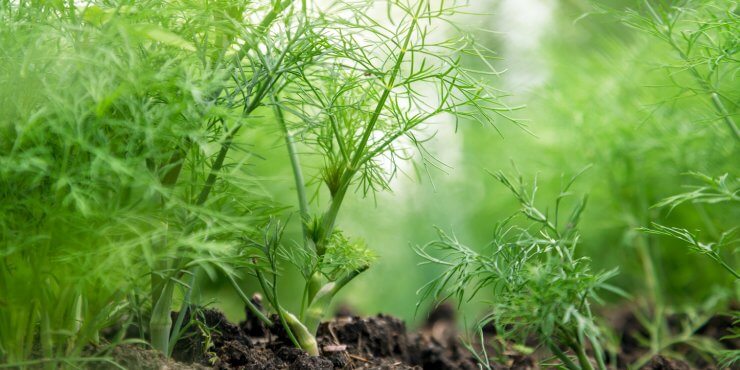
Dill in the garden
Dill plant varieties have many similarities, but there are some differences to consider. Some types have greenish-blue vs. green leaves, some varieties have more brilliant flowers and seed heads, and some smell and taste stronger than others. The most significant types of dill are:
Dwarf Dill
Most dill varieties grow to 24 to 30 inches, and some, such as Mammoth dill, can reach up to 6 feet. Dwarf varieties like Fernleaf grow only 12 to 18 inches and make excellent container plants for indoor or outdoor growing.
Slow-Bolting Dill
Like many grassy plants, dill will bolt, or rapidly grow tall, as it races to produce seeds for reproduction. When that happens, the plant stops producing leaves. If you’re growing dill primarily for the leaves, choose slow-bolting dill varieties like Dukat. These cultivars will develop more slowly over the growing season, bolting only near the end.
To maintain a continuous dill weed harvest with a fast-bolting variety, plant seeds every three weeks starting in the spring and the plants will grow in succession.
Which type of dill have you grown? Do you have a preference? Please share your opinion.


 Previous
Previous

